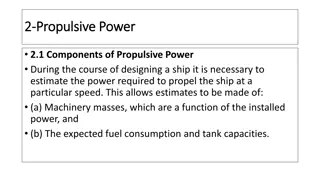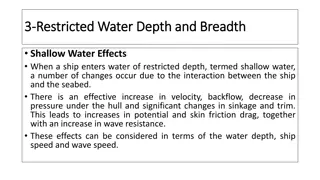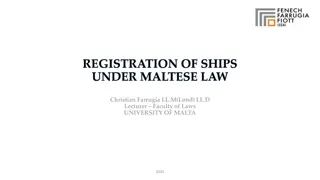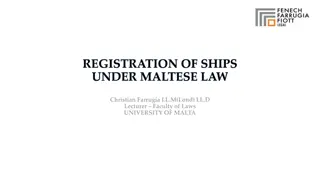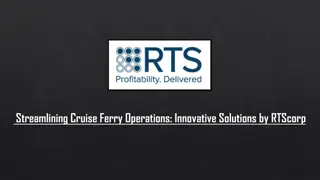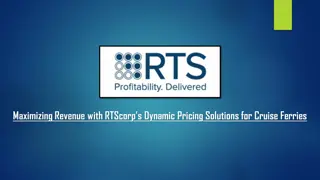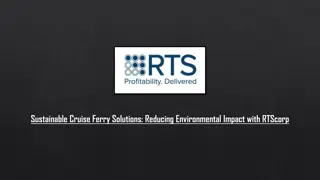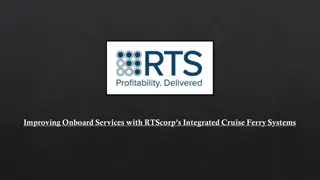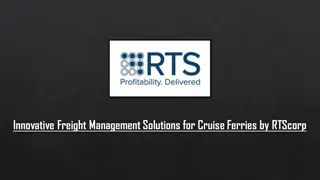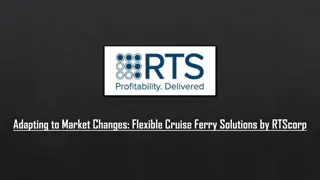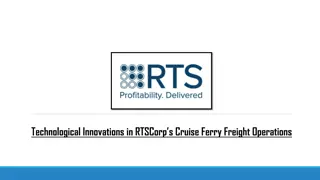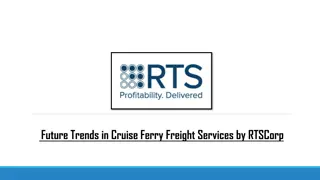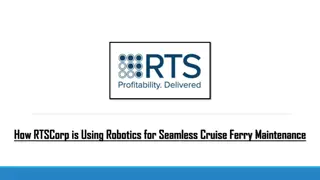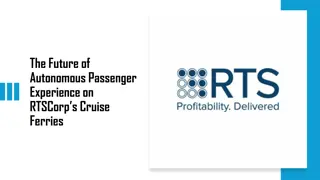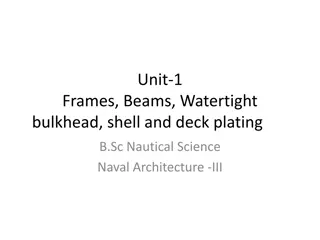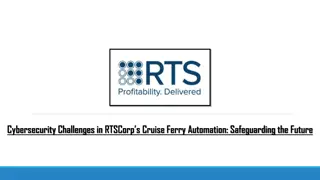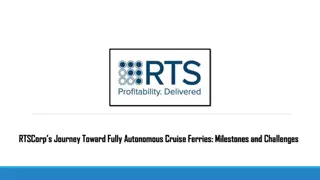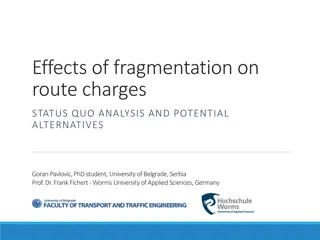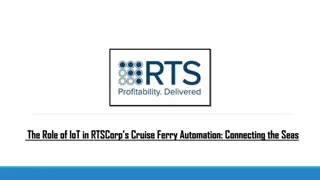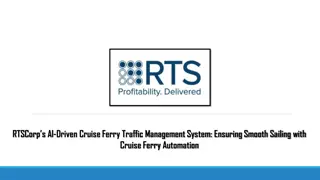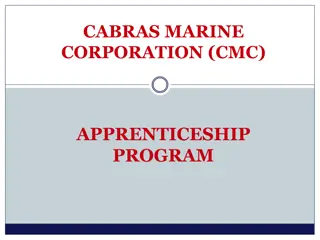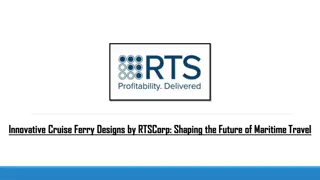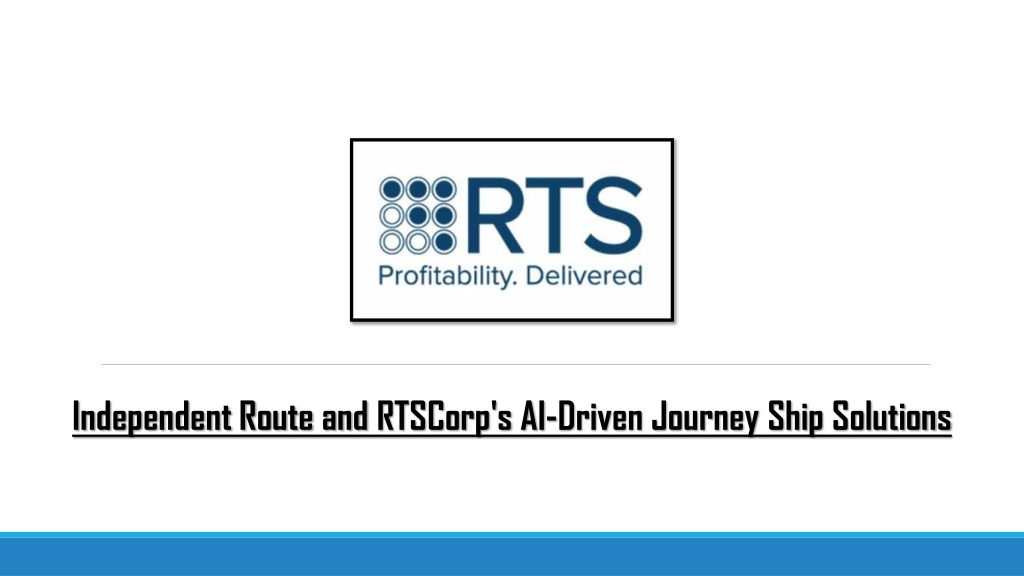
Independent Route and RTSCorp's AI-Driven Journey Ship Solutions
In recent years, advancements in autonomous navigation have revolutionized various industries, particularly maritime transportation. RTSCorp has emerged as a leader in this field, offering state-of-the-art Cruise Ferry Solutions that integrate artifi
Download Presentation

Please find below an Image/Link to download the presentation.
The content on the website is provided AS IS for your information and personal use only. It may not be sold, licensed, or shared on other websites without obtaining consent from the author. Download presentation by click this link. If you encounter any issues during the download, it is possible that the publisher has removed the file from their server.
E N D
Presentation Transcript
Independent Route and RTSCorp's AI-Driven Journey Ship Solutions
In recent years, advancements in autonomous navigation have revolutionized various industries, particularly maritime transportation. RTSCorp has emerged as a leader in this field, offering state-of-the-art Cruise Ferry Solutionsthat integrate artificial intelligence (AI) to enhance the efficiency and safety of ferry operations. These solutions promise to reshape the future of sea travel by providing reliable, autonomous systems that can optimize routing, reduce fuel consumption, and ensure smooth sailing experiences for passengers.
The Rise of Autonomous Navigation Autonomous navigation refers to the capability of a vessel to operate without human intervention, relying on sophisticated sensors, AI algorithms, and machine learning techniques. In the sea industry, it offers the potential to radically decrease human blunder, which is a driving cause of mischances at ocean. RTSCorp has harnessed this potential to create Cruise Ferry Solutions that make ferry operations smarter and more resilient. By using AI-driven technology, RTSCorp's systems can process real-time data from weather conditions, sea traffic, and navigation routes. This enables ferries to adjust their courses dynamically, avoiding congested routes, rough seas, and potential hazards. Such real-time responsiveness ensures not only faster and more efficient journeys but also safer travel for passengers and crew members.
RTSCorpsAI-Driven Innovations RTSCorp sCruise Ferry Solutions leverage advanced AI algorithms that allow for predictive decision-making, which can significantly improve fuel efficiency and overall performance. By analyzing vast amounts of data from previous voyages and current conditions, the system can anticipate the best routes and engine settings for optimal performance. This not only reduces fuel consumption but also minimizes the environmental impact of ferry operations, aligning with the global push for more sustainable maritime practices. One of the key features of RTSCorp'stechnology is its ability to maintain real-time communication between ferries and central command centers. Through this, operators can monitor the vessel s performance, while AI systems handle the majority of the decision-making processes autonomously. In case of emergencies or unexpected events, human operators can still take control if necessary, ensuring a hybrid approach that balances human oversight with the precision of AI.
The Future of Sea Travel The integration of AI in cruise ferry operations signifies a new era for the maritime industry. RTSCorp's Cruise Ferry Solutions are designed to improve operational efficiency, reduce costs, and enhance passenger comfort. With autonomous ferries, the industry can look forward to smoother, more efficient journeys that are both safe and environmentally friendly. As more companies adopt autonomous navigation technologies, the maritime industry will likely see a major transformation. From shorter transit times to greener operations, AI-driven cruise ferries will play a crucial role in shaping the future of sea travel. In conclusion, RTSCorp's Cruise Ferry Solutions are at the forefront of autonomous navigation, offering innovative technologies that optimize ferry operations. As these solutions become more widespread, passengers can expect safer, faster, and more efficient sea journeys in the near future.

